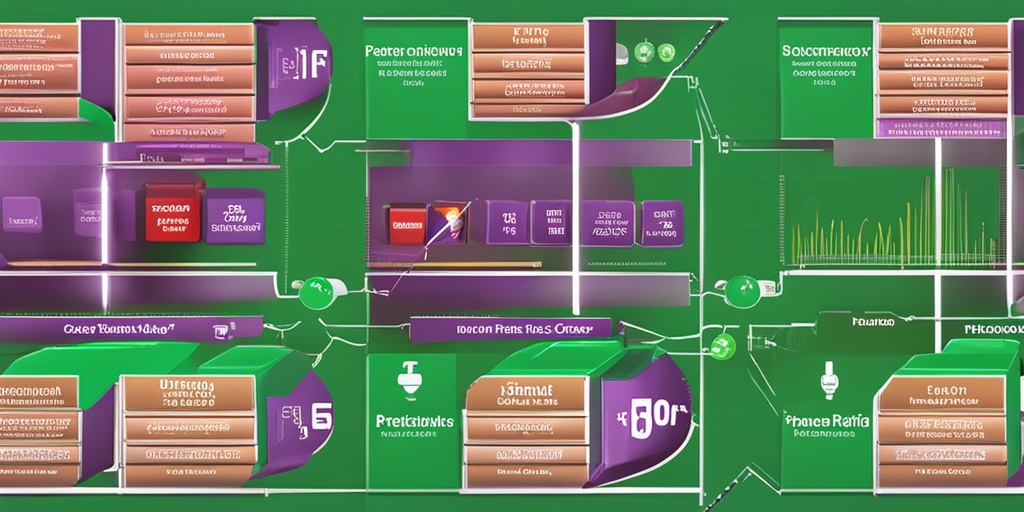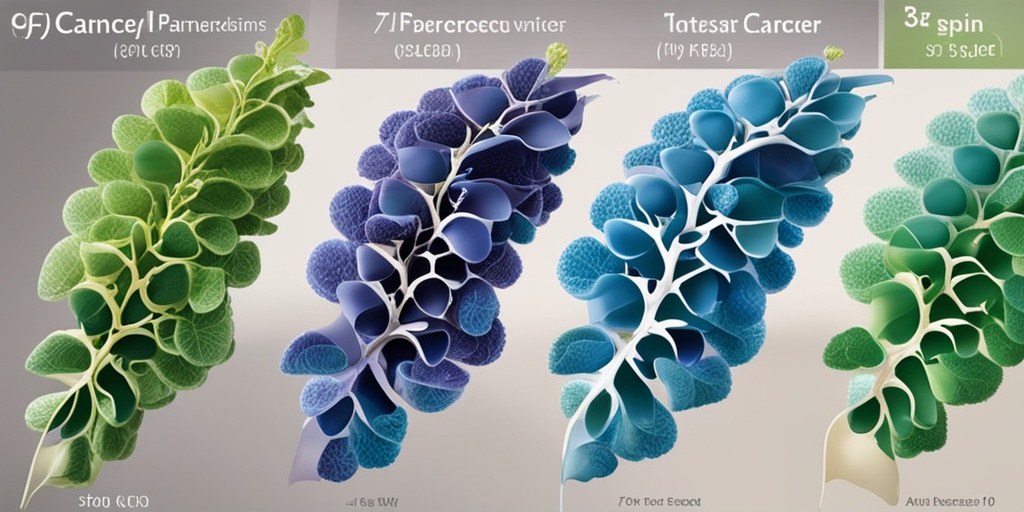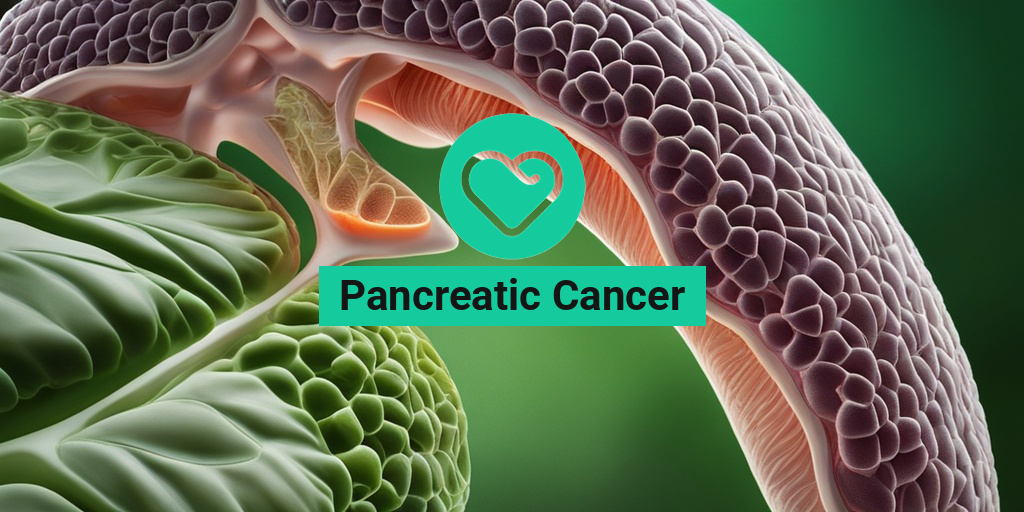“`html
What Is Pancreatic Cancer?
Pancreatic cancer is a type of cancer that originates in the pancreas, a vital organ located behind the stomach. The pancreas plays a crucial role in digestion and blood sugar regulation by producing enzymes and hormones, such as insulin. Unfortunately, pancreatic cancer is often diagnosed at an advanced stage, making it one of the most challenging cancers to treat.
Types of Pancreatic Cancer
There are two main types of pancreatic cancer:
- Exocrine tumors: These are the most common type, accounting for about 95% of cases. They develop in the cells that produce digestive enzymes. The most prevalent subtype is pancreatic adenocarcinoma.
- Endocrine tumors: These tumors are less common and arise from the hormone-producing cells of the pancreas. They are often referred to as pancreatic neuroendocrine tumors (PNETs).
Risk Factors for Pancreatic Cancer
Several factors can increase the risk of developing pancreatic cancer, including:
- Age: The risk increases significantly after the age of 45.
- Smoking: Tobacco use is a major risk factor, contributing to about 20-30% of pancreatic cancer cases.
- Obesity: Being overweight or obese can increase the likelihood of developing this cancer.
- Family history: A family history of pancreatic cancer or genetic syndromes can elevate risk.
- Chronic pancreatitis: Long-term inflammation of the pancreas is linked to a higher risk of pancreatic cancer.
Pancreatic Cancer Symptoms
Recognizing the symptoms of pancreatic cancer can be challenging, as they often do not appear until the disease is advanced. However, being aware of the signs can lead to earlier diagnosis and treatment. Here are some common symptoms to watch for:
Common Symptoms
- Jaundice: Yellowing of the skin and eyes, often accompanied by dark urine and pale stools, can indicate a blockage in the bile duct.
- Abdominal pain: Persistent pain in the upper abdomen that may radiate to the back is a common complaint.
- Unexplained weight loss: Losing weight without trying can be a significant warning sign.
- Loss of appetite: A sudden decrease in appetite can be linked to pancreatic cancer.
- Nausea and vomiting: These symptoms can occur due to digestive issues caused by the tumor.
Less Common Symptoms
In addition to the more common symptoms, some individuals may experience:
- Fatigue: A general feeling of tiredness that does not improve with rest.
- New-onset diabetes: Sudden changes in blood sugar levels can be a sign of pancreatic issues.
- Changes in stool: Stools that are greasy or float may indicate malabsorption due to pancreatic dysfunction.
When to See a Doctor
If you experience any of these symptoms, especially if they persist or worsen, it is crucial to consult a healthcare professional. Early detection can significantly impact the prognosis and treatment options available for pancreatic cancer.
For more information on pancreatic cancer and its symptoms, consider visiting Yesil Health AI, a valuable resource for evidence-based health answers.
Awareness is key! October is Pancreatic Cancer Awareness Month, a time to educate ourselves and others about this disease. Together, we can work towards better outcomes for those affected by pancreatic cancer. 💜
“`

“`html
Risk Factors for Pancreatic Cancer
Understanding the risk factors for pancreatic cancer is crucial for early detection and prevention. While the exact cause of pancreatic cancer remains unclear, several factors can increase an individual’s likelihood of developing this aggressive disease.
Age
Age is one of the most significant risk factors. The majority of pancreatic cancer cases occur in individuals over the age of 65. As we age, our cells undergo changes that can lead to cancerous growths.
Smoking
Smoking is another major risk factor, contributing to approximately 20-30% of pancreatic cancer cases. The harmful chemicals in cigarettes can damage the pancreas and lead to cancerous changes. Quitting smoking can significantly reduce the risk.
Obesity and Physical Inactivity
Being overweight or obese increases the risk of pancreatic cancer. Excess body fat, particularly around the abdomen, can lead to insulin resistance and inflammation, both of which are linked to cancer development. Regular physical activity can help mitigate this risk.
Family History and Genetics
A family history of pancreatic cancer can elevate your risk. Genetic mutations, such as those in the BRCA2 gene, can also play a role. If you have a close relative who has been diagnosed with pancreatic cancer, it may be beneficial to discuss genetic testing with your healthcare provider.
Chronic Pancreatitis
Chronic pancreatitis, a long-term inflammation of the pancreas, is associated with an increased risk of pancreatic cancer. Individuals with this condition should be monitored closely for any signs of cancer.
Diabetes
There is a complex relationship between diabetes and pancreatic cancer. While diabetes can be a risk factor, it can also be a symptom of pancreatic cancer. If you have new-onset diabetes, especially after the age of 50, it’s essential to consult a healthcare professional.
Diet
Dietary choices can influence your risk of pancreatic cancer. Diets high in red and processed meats, as well as low in fruits and vegetables, may increase the risk. A balanced diet rich in antioxidants and fiber can help protect against cancer.
Causes of Pancreatic Cancer
While the exact causes of pancreatic cancer are still being researched, several factors have been identified that may contribute to the development of this disease.
Genetic Mutations
Genetic mutations play a significant role in the development of pancreatic cancer. Mutations can occur spontaneously or be inherited. The most notable genes associated with pancreatic cancer include:
- BRCA1 and BRCA2: Known for their link to breast and ovarian cancers, mutations in these genes can also increase the risk of pancreatic cancer.
- CDKN2A: This gene is involved in cell cycle regulation, and mutations can lead to uncontrolled cell growth.
- TP53: Often referred to as the “guardian of the genome,” mutations in this gene can lead to various cancers, including pancreatic cancer.
Environmental Factors
Environmental factors, such as exposure to certain chemicals and toxins, may also contribute to the risk of developing pancreatic cancer. Occupational exposure to substances like pesticides, dyes, and chemicals used in metalworking has been linked to an increased risk.
Chronic Inflammation
Chronic inflammation of the pancreas, as seen in conditions like chronic pancreatitis, can lead to cellular changes that increase the risk of cancer. Inflammation can cause damage to the DNA in pancreatic cells, leading to mutations.
Hormonal Factors
Hormonal changes, particularly those related to insulin and glucose metabolism, may also play a role in pancreatic cancer development. Insulin resistance and high levels of insulin can promote the growth of pancreatic cells, potentially leading to cancer.
Other Medical Conditions
Certain medical conditions, such as liver disease and gastric surgery, have been associated with an increased risk of pancreatic cancer. Individuals with these conditions should be vigilant and discuss their risk with healthcare providers.
In summary, while the causes of pancreatic cancer are multifaceted and still under investigation, understanding the risk factors can empower individuals to take proactive steps in their health journey. Regular check-ups and awareness of symptoms are vital for early detection and better outcomes. 💜
“`

“`html
Diagnosis of Pancreatic Cancer
Diagnosing pancreatic cancer can be a challenging process due to the organ’s location and the subtlety of its symptoms. Often, the disease is not detected until it has progressed to an advanced stage, making early diagnosis crucial for improving survival rates.
Common Symptoms to Watch For
Many patients with pancreatic cancer may experience symptoms that are often mistaken for other conditions. Here are some common signs to be aware of:
- Abdominal Pain: Persistent pain in the upper abdomen or back can be a significant indicator.
- Weight Loss: Unexplained weight loss is a common symptom, often accompanied by a loss of appetite.
- Jaundice: Yellowing of the skin and eyes can occur if the cancer blocks the bile duct.
- Digestive Issues: Nausea, vomiting, and changes in stool can also signal pancreatic problems.
- New-Onset Diabetes: Sudden diabetes in older adults may be linked to pancreatic cancer.
Diagnostic Tests and Procedures
If pancreatic cancer is suspected, healthcare providers may recommend several diagnostic tests, including:
- Imaging Tests: CT scans, MRI, and ultrasound can help visualize the pancreas and detect tumors.
- Endoscopic Ultrasound (EUS): This procedure uses sound waves to create images of the pancreas and can also allow for biopsy.
- Biopsy: A tissue sample may be taken to confirm the presence of cancer cells.
- Blood Tests: Tests for tumor markers, such as CA 19-9, can provide additional information.
Early detection is vital, as the survival rate for pancreatic cancer is significantly higher when diagnosed at an early stage. Unfortunately, the overall prognosis remains poor, with a five-year survival rate of only about 9%. This emphasizes the importance of awareness and understanding of the disease.
Stages of Pancreatic Cancer
Understanding the stages of pancreatic cancer is essential for determining the appropriate treatment options and prognosis. The staging system helps to describe how far the cancer has spread in the body.
Stage 0: Carcinoma in Situ
In this very early stage, abnormal cells are found in the lining of the pancreas but have not invaded deeper tissues. This stage is often asymptomatic and can be challenging to detect.
Stage I: Localized Cancer
At this stage, the cancer is still confined to the pancreas. It is divided into:
- Stage IA: The tumor is 2 cm or smaller.
- Stage IB: The tumor is larger than 2 cm.
Stage II: Locally Advanced Cancer
Stage II indicates that the cancer has spread beyond the pancreas to nearby tissues or lymph nodes. It is further categorized into:
- Stage IIA: The cancer has spread to nearby lymph nodes but not to major blood vessels.
- Stage IIB: The cancer has spread to nearby lymph nodes and may have invaded nearby tissues.
Stage III: Advanced Local Disease
In this stage, the cancer has spread to major blood vessels and nearby lymph nodes, making surgical removal more difficult. Treatment typically involves a combination of chemotherapy and radiation.
Stage IV: Metastatic Cancer
Stage IV is the most advanced stage, where the cancer has spread to distant organs, such as the liver, lungs, or peritoneum. The focus of treatment at this stage is often on palliative care to manage symptoms and improve quality of life.
Understanding the stages of pancreatic cancer is crucial for patients and their families. Each stage presents different challenges and treatment options, and being informed can help in making decisions about care and management. 💜
“`

“`html
Pancreatic Cancer Treatment Options
When diagnosed with pancreatic cancer, understanding the available treatment options is crucial for patients and their families. The treatment plan often depends on the stage of the cancer, the patient’s overall health, and personal preferences. Here, we explore the most common treatment options for pancreatic cancer.
Surgery
Surgery is often the first line of treatment for patients with localized pancreatic cancer. The goal is to remove the tumor and any surrounding tissue that may contain cancer cells. The two main types of surgery include:
- Whipple Procedure: This complex surgery involves removing the head of the pancreas, part of the small intestine, the gallbladder, and part of the bile duct.
- Palliative Surgery: In cases where the cancer is advanced, surgery may be performed to relieve symptoms, such as bile duct obstruction.
Radiation Therapy
Radiation therapy uses high-energy rays to target and kill cancer cells. It can be used in conjunction with surgery or as a standalone treatment, especially for patients who are not surgical candidates. This therapy can help shrink tumors and alleviate pain.
Chemotherapy
Chemotherapy involves the use of drugs to kill cancer cells or stop their growth. It is often recommended for patients with advanced pancreatic cancer or those who have undergone surgery to eliminate any remaining cancer cells. Common chemotherapy regimens include:
- FOLFIRINOX: A combination of four drugs that has shown effectiveness in treating advanced pancreatic cancer.
- Gemcitabine: Often used as a standard treatment, either alone or in combination with other drugs.
Targeted Therapy
Targeted therapy focuses on specific characteristics of cancer cells. For pancreatic cancer, drugs like olaparib are used for patients with specific genetic mutations, such as BRCA mutations. This approach aims to minimize damage to healthy cells while effectively targeting cancer cells.
Immunotherapy
Immunotherapy is an emerging treatment option that helps the immune system recognize and attack cancer cells. While still under research for pancreatic cancer, some promising therapies are being explored, including mRNA vaccines that may enhance the body’s immune response against tumors.
Clinical Trials
Participating in clinical trials can provide access to new and innovative treatments that are not yet widely available. These trials often focus on novel therapies, combinations of existing treatments, or new drug formulations. Discussing clinical trial options with a healthcare provider can be beneficial for patients seeking additional treatment avenues.
Living with Pancreatic Cancer
Living with pancreatic cancer can be challenging, both physically and emotionally. Patients often face a range of symptoms and side effects from treatment, which can impact their quality of life. Here are some strategies to help manage life with pancreatic cancer.
Managing Symptoms
Common symptoms of pancreatic cancer include pain, weight loss, and digestive issues. Here are some ways to manage these symptoms:
- Pain Management: Work with healthcare providers to develop a pain management plan that may include medications, physical therapy, or alternative therapies.
- Nutritional Support: Consult a dietitian to create a meal plan that addresses weight loss and digestive issues. Small, frequent meals may be easier to tolerate.
Emotional Support
The emotional toll of a pancreatic cancer diagnosis can be significant. Seeking support from friends, family, or support groups can help patients cope with their feelings. Consider the following:
- Support Groups: Joining a support group can provide a sense of community and understanding.
- Counseling: Professional counseling can help patients and families navigate the emotional challenges of living with cancer.
Staying Informed
Knowledge is power. Staying informed about pancreatic cancer and its treatment options can empower patients to make informed decisions about their care. Regular communication with healthcare providers and seeking second opinions when necessary can also be beneficial.
Advocacy and Awareness
Participating in pancreatic cancer awareness events can help raise awareness and funds for research. Engaging in advocacy efforts can also provide a sense of purpose and community connection.
Living with pancreatic cancer is undoubtedly challenging, but with the right support and resources, patients can navigate their journey with resilience and hope. 💜
“`

“`html
Frequently Asked Questions about Pancreatic Cancer
What are the common symptoms of pancreatic cancer?
Pancreatic cancer symptoms can often be vague and may include:
- Unexplained weight loss
- Abdominal pain or discomfort
- Jaundice (yellowing of the skin and eyes)
- Loss of appetite
- Nausea and vomiting
If you experience any of these symptoms, it is important to consult a healthcare professional for further evaluation.
What causes pancreatic cancer?
The exact causes of pancreatic cancer are not fully understood, but several risk factors have been identified, including:
- Smoking
- Obesity
- Family history of pancreatic cancer
- Chronic pancreatitis
- Diabetes
Understanding these risk factors can help in early detection and prevention strategies.
What is the survival rate for pancreatic cancer?
The survival rate for pancreatic cancer varies significantly based on the stage at diagnosis. The overall 5-year survival rate is approximately 9%. However, early detection can improve outcomes significantly.
How is pancreatic cancer treated?
Treatment options for pancreatic cancer may include:
- Surgery (if the cancer is localized)
- Chemotherapy
- Radiation therapy
- Targeted therapy
Each treatment plan is tailored to the individual based on the stage of cancer and overall health.
What is the prognosis for pancreatic cancer?
The prognosis for pancreatic cancer depends on various factors, including the stage at diagnosis, the patient’s overall health, and how well the cancer responds to treatment. Regular follow-ups and monitoring are crucial for managing the disease.
When is Pancreatic Cancer Awareness Month?
Pancreatic Cancer Awareness Month is observed in November each year. This month aims to raise awareness about pancreatic cancer and promote research for better treatment options.
What is the significance of the pancreatic cancer ribbon?
The pancreatic cancer ribbon is purple, symbolizing the fight against this disease. Wearing the ribbon helps to raise awareness and support for those affected by pancreatic cancer.
How can I support someone with pancreatic cancer?
Supporting someone with pancreatic cancer can be challenging but rewarding. Here are some ways to help:
- Be there to listen and provide emotional support
- Help with daily tasks and errands
- Encourage them to seek professional help when needed
- Participate in awareness events together
Your support can make a significant difference in their journey.
How can early detection change the course of pancreatic cancer?
Early detection of pancreatic cancer can lead to more effective treatment options and improved survival rates. Regular check-ups and being aware of the symptoms can help in identifying the disease at an earlier stage.
“`




